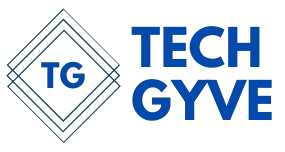Intuitive Machines has made history with the successful landing of its Nova-C lunar module, dubbed “Odysseus,” marking the first U.S. touchdown on the Moon in over five decades. This achievement by the private aerospace firm is a milestone in NASA’s broader strategy to leverage private industry for space exploration. The mission, known as IM-1, concluded on February 29, 2024, and stands as a testament to the growing role of non-governmental players in space missions.

The journey wasn’t without its challenges. Upon landing, the Nova-C module tipped onto its side, a hiccup in an otherwise triumphant mission. Despite this, the module delivered its payload, including critical NASA instruments, to the lunar surface, achieving the mission’s primary objective. The module touched down at 80.13° south latitude, nearly hitting NASA’s target near the Moon’s south pole, a region of immense scientific interest.
The success of IM-1 has set the stage for further collaborations between Intuitive Machines and NASA. The space agency has already secured two more missions with the company, with the next lunar delivery scheduled before the end of this year and another in 2025. Looking further ahead, the IM-4 mission, set for 2027, will see Intuitive Machines deliver six scientific instruments to the Moon’s south pole, a region believed to hold key resources for future lunar bases.
These instruments, totaling 79 kilograms, will play a crucial role in assessing the availability of water and other volatile substances at the south pole. One of the most intriguing components of the mission is the Lunar Explorer, which will carry colonies of live yeast to study the effects of microgravity and radiation on biological organisms. The European Space Agency is also contributing with a mini-drilling rig designed to search for frozen water and gases beneath the lunar surface.

Additionally, the IM-4 mission will deploy a range of advanced instruments, including a Fluxgate magnetometer to track magnetic fields and charged particles near the lunar surface and a Lunar Compact sensor for mapping surface temperatures and identifying potential resource deposits. These missions not only aim to explore the Moon’s geology but also to prepare for future human habitation by ensuring that essential resources like water are available.
Intuitive Machines’ series of lunar missions represents a new era in space exploration, where private companies play a pivotal role in expanding humanity’s reach beyond Earth. With NASA’s support, these missions are not just about scientific discovery but also about laying the groundwork for sustained human presence on the Moon.
Source:
